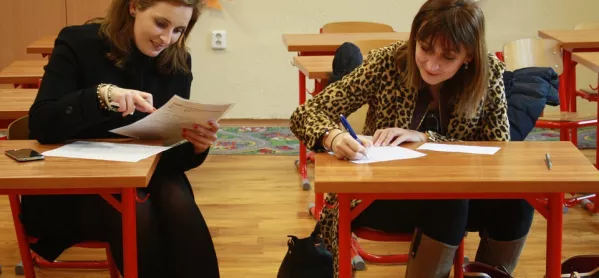Parents can drive us mad in schools. The trouble is, they just can’t get it right.
They either want too much for their children, or they don’t support them enough. They don’t back us when their child has done something wrong, or by contrast, they insist there is bullying and wickedness involved where a friendship group has simply dissolved.
Ask any adolescent, and you’ll get the same answer - parents haven’t a clue.
But this simply isn’t true. I’ve found the overwhelming majority of parents are committed, well-intentioned and often worried about the pressures, influences and temptations that their children face.
Although you wouldn’t believe it from some reports, most are simply doing the best job they can.
In Thursday’s Daily Telegraph: “Are you an accidental pushy parent?” Grant Feller provided a confessional piece concluding that “despite best intentions the urge for children to over-achieve can take over”.
“We have become a middle-class society riven by guilt, split between those who feel they are not pushing their children enough and those willingly pushing them too hard.”
Really? Naturally, we are concerned about pressure on young people, whether exerted by schools, society, their own ambitions and anxieties or their parents. Young Minds is an organisation doing particularly good work on the mental health agenda and the dangers posed by exams and exam pressures.
We should try not to blame parents for everything. If I look back over the last few years, it seems that every passing criticism from a headteacher of the shortcomings of parents is immediately blown up into a media story.
It’s not just about pushy parents, either. A primary head near me advised parents that they really shouldn’t attend school events such as nativity plays in their pyjamas. She made a fair point - they shouldn’t. For months afterwards she became “The head who banned pyjamas”. She wasn’t indulging in parent-bashing, but you might have got that impression from the reporting of her very measured letter.
As schools become increasingly concerned about children’s addiction to digital devices, a consensus is emerging that right use of the technology starts in the home, with devices banned from the bedroom, a shared charging point elsewhere, and parents themselves surrendering their phones at the dining-table.
It’s just good parenting. But when we promote such an approach, let’s avoid suggesting that all parents are currently setting a bad example.
Then there are the other types of parents lambasted in the media, again picking up on comments by headteachers. So we castigate “helicopter parents” who, as soon as there is a problem in school, arrive like a SWAT team to do battle: overbearing parents; feckless parents; parents who, amid affluence, neglect their kids. It seems none of them can get it right.
Let’s return to the Telegraph piece. To be sure, there’s a story of attempted suicide and self-confessed pushy parents who realised they must step back and stop being so ambitious for (and demanding of) their children. Overall, it’s a balanced, well-judged piece: nonetheless the headline screams “pushy”.
As another generation of parents deal with this year’s intensive exam period, can we back off and cut them a bit of slack? Even afford them some credit for the good that they do, and the well-meaning and selfless ways in which they support their children through a difficult time?
Maybe we should, and simultaneously avoid cranking up the pressure on them.
Finally, a note to the Telegraph: was it necessary to insert into the article an information box with six “exam tips to tell your teenagers”? Not one of them, by the way, was about reducing pressure or stress. They were all about assuring more successful exam performance.
At least they can’t blame that bit on the parents.
Dr Bernard Trafford is headteacher of the Royal Grammar School, Newcastle upon Tyne, and a former chair of the Headmasters’ and Headmistresses’ Conference. The views expressed here are personal. He tweets at @bernardtrafford
To read more columns, view his back catalogue
Want to keep up with the latest education news and opinion? Follow Tes on Twitter and like Tes on Facebook




